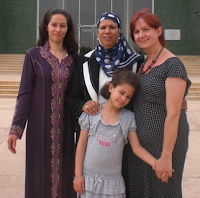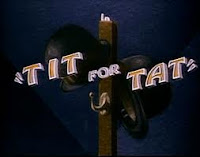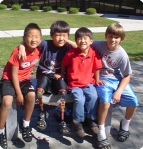By Victor Davidoff | www.sptimes.ru
After the State Duma passed a bill banning adoptions by Americans, journalist Valery Panyushkin wrote on Facebook, “I know of only two organizations in the world that scare their enemies by harming their own children: Hamas and the United Russia party.”
As a child welfare activist in addition to being a journalist, Panyushkin knows better than most how disastrous the situation is for Russia’s orphans. Today, more than 100,000 orphans live in state institutions, and about 11,000 are adopted in Russia every year. Children with cerebral palsy, other genetic conditions and HIV have it worst of all. Their chances of being adopted in Russia are nil. They are often denied basic care and grow up unable to speak or communicate. As children’s rights activist Ksenia Fisher wrote on Twitter, “The last time I was in an orphanage, I remember what the kids with disabilities said. They all dream of being adopted by Americans. Otherwise, no one will take them.”
It is also well-known that the chances a child will die after being adopted by a family in Russia are almost 40 times higher than if adopted by a family in the West. In just a few days, more than 100,000 people signed a petition asking the Duma to vote against the ban. There was even opposition to the ban among some United Russia deputies, and the Kremlin was compelled to take unprecedented tough measures to tame their unruly deputies to vote for the ban. The deputies were given an ultimatum: Vote for the law or be ousted from the faction and lose your parliamentary seat. Deputy Alexander Sidyakin abstained, and he was asked to write a note explaining that the electronic voting system at his seat “broke.” Sidyakin refused and is now awaiting the party’s decision on whether his seat will be taken away.
That wasn’t the only dramatic moment in the debates. Vyacheslav Osipov, another United Russia deputy, had chest pains and didn’t attend the voting. But he left his electronic voting card with another party member. His colleague voted for him, and Osipov’s vote for the ban was duly registered. The twist was that by the time deputies cast their votes, Osipov had already died of a heart attack. Even the most rational mind would see a bad omen in a blessing from a dead man.
In the Russian blogosphere, the law was quickly dubbed “the law of scoundrels” and “the law of King Herod.” As television journalist Alexander Arkhangelsky wrote on his LiveJournal blog: “You can argue about whether the Magnitsky Act is good or bad. But you can’t argue about whether or not our orphaned children should be adopted by families that live in the country that passed the Magnitsky Act. Children are above political interests, sovereignty and citizenship. Any response that uses these children leads to dehumanization.”
The reaction of the country’s liberals could be predicted, but it was surprising to hear negative reactions from people who never disagree with the government. Even some members of the Russian Orthodox Church’s high clergy expressed criticism. On the Web portal “Orthodoxy and the World,” Bishop Panteleimon of Smolensk and Vyazemsk wrote: “It is unacceptable to make decisions that affect children based on political trends. All the laws passed by the government must be based on the interests of people. For the sake of people’s interests, you can even sacrifice the prestige of the state.”
Even more surprising was the opinion of Kremlin-loyal television commentator Mikhail Leontyev, whose anti-Americanism on a scale of one to 10 is a solid 11. Nonetheless, Leontyev came out against the law on his Odnako blog. While not renouncing his standard anti-U.S. rhetoric, he reasonably noted that “there are certainly problems with American adoptions, but not with American adoption in and of itself. Through these adoptions, about 50,000 children have gotten the help, care and love that they couldn’t have gotten in their homeland.”
Although passage of the law was formally motivated by concern for the health and well-being of adopted children, few deputies hid that their real goal was punishing the U.S. Liberal Democratic Party Deputy Sergei Ivanov made this very clear in his statement to the protesters: “We have a huge number of ill-wishers abroad. With this law, we can stop their activities in Russia.”
Just Russia Deputy Svetlana Goryacheva had an even more exotic justification for supporting the law. According to her theory, the U.S. is using these children to form an army to invade Russia. In her speech in the Duma on Wednesday, Goryacheva said that “60,000 children have been taken to the U.S. from Russia. And if even one-tenth of these orphans were used for organ transplants or sexual pleasure, there will remain 50,000 who can be recruited for war against Russia.” Josef Stalin would have applauded that speech with loud cheers of “bravo!”
Indeed, the Soviet government forbade foreign adoptions. They were first allowed during the warming of relations with the U.S. during the last years of Soviet leader Mikhail Gorbachev’s rule. It looks like Putin’s time machine, set in motion at the start of his third term, is returning the country to that era. In the past year, inch by inch, Putin has been rebuilding parts of the iron curtain, creating obstacles to free flow of information and personal contacts. On the same day the law on adoptions was passed, the Duma also ratified a law prohibiting people with dual citizenship from heading Russian nongovernmental organizations. It is widely believed that this measure was taken against two people: Lyudmila Alexeyeva, who heads the Moscow Helsinki Group, and Tatyana Lokshina, deputy director of Human Rights Watch’s Moscow office.
Grigory Yavlinsky, a leader of the Yabloko party, wrote on his LiveJournal blog: “This law not only is cruel but also speaks of the Bolshevik nature and Stalinist roots of the Russian political system. This is capitalism with a Stalinist face.”
Now the only question is: How far back into the dark days of the Soviet Union will Putin’s time machine lead the country?
Victor Davidoff is a Moscow-based writer and journalist who follows the Russian blogosphere in his biweekly column.
After the State Duma passed a bill banning adoptions by Americans, journalist Valery Panyushkin wrote on Facebook, “I know of only two organizations in the world that scare their enemies by harming their own children: Hamas and the United Russia party.”
As a child welfare activist in addition to being a journalist, Panyushkin knows better than most how disastrous the situation is for Russia’s orphans. Today, more than 100,000 orphans live in state institutions, and about 11,000 are adopted in Russia every year. Children with cerebral palsy, other genetic conditions and HIV have it worst of all. Their chances of being adopted in Russia are nil. They are often denied basic care and grow up unable to speak or communicate. As children’s rights activist Ksenia Fisher wrote on Twitter, “The last time I was in an orphanage, I remember what the kids with disabilities said. They all dream of being adopted by Americans. Otherwise, no one will take them.”
It is also well-known that the chances a child will die after being adopted by a family in Russia are almost 40 times higher than if adopted by a family in the West. In just a few days, more than 100,000 people signed a petition asking the Duma to vote against the ban. There was even opposition to the ban among some United Russia deputies, and the Kremlin was compelled to take unprecedented tough measures to tame their unruly deputies to vote for the ban. The deputies were given an ultimatum: Vote for the law or be ousted from the faction and lose your parliamentary seat. Deputy Alexander Sidyakin abstained, and he was asked to write a note explaining that the electronic voting system at his seat “broke.” Sidyakin refused and is now awaiting the party’s decision on whether his seat will be taken away.
That wasn’t the only dramatic moment in the debates. Vyacheslav Osipov, another United Russia deputy, had chest pains and didn’t attend the voting. But he left his electronic voting card with another party member. His colleague voted for him, and Osipov’s vote for the ban was duly registered. The twist was that by the time deputies cast their votes, Osipov had already died of a heart attack. Even the most rational mind would see a bad omen in a blessing from a dead man.
In the Russian blogosphere, the law was quickly dubbed “the law of scoundrels” and “the law of King Herod.” As television journalist Alexander Arkhangelsky wrote on his LiveJournal blog: “You can argue about whether the Magnitsky Act is good or bad. But you can’t argue about whether or not our orphaned children should be adopted by families that live in the country that passed the Magnitsky Act. Children are above political interests, sovereignty and citizenship. Any response that uses these children leads to dehumanization.”
The reaction of the country’s liberals could be predicted, but it was surprising to hear negative reactions from people who never disagree with the government. Even some members of the Russian Orthodox Church’s high clergy expressed criticism. On the Web portal “Orthodoxy and the World,” Bishop Panteleimon of Smolensk and Vyazemsk wrote: “It is unacceptable to make decisions that affect children based on political trends. All the laws passed by the government must be based on the interests of people. For the sake of people’s interests, you can even sacrifice the prestige of the state.”
Even more surprising was the opinion of Kremlin-loyal television commentator Mikhail Leontyev, whose anti-Americanism on a scale of one to 10 is a solid 11. Nonetheless, Leontyev came out against the law on his Odnako blog. While not renouncing his standard anti-U.S. rhetoric, he reasonably noted that “there are certainly problems with American adoptions, but not with American adoption in and of itself. Through these adoptions, about 50,000 children have gotten the help, care and love that they couldn’t have gotten in their homeland.”
Although passage of the law was formally motivated by concern for the health and well-being of adopted children, few deputies hid that their real goal was punishing the U.S. Liberal Democratic Party Deputy Sergei Ivanov made this very clear in his statement to the protesters: “We have a huge number of ill-wishers abroad. With this law, we can stop their activities in Russia.”
Just Russia Deputy Svetlana Goryacheva had an even more exotic justification for supporting the law. According to her theory, the U.S. is using these children to form an army to invade Russia. In her speech in the Duma on Wednesday, Goryacheva said that “60,000 children have been taken to the U.S. from Russia. And if even one-tenth of these orphans were used for organ transplants or sexual pleasure, there will remain 50,000 who can be recruited for war against Russia.” Josef Stalin would have applauded that speech with loud cheers of “bravo!”
Indeed, the Soviet government forbade foreign adoptions. They were first allowed during the warming of relations with the U.S. during the last years of Soviet leader Mikhail Gorbachev’s rule. It looks like Putin’s time machine, set in motion at the start of his third term, is returning the country to that era. In the past year, inch by inch, Putin has been rebuilding parts of the iron curtain, creating obstacles to free flow of information and personal contacts. On the same day the law on adoptions was passed, the Duma also ratified a law prohibiting people with dual citizenship from heading Russian nongovernmental organizations. It is widely believed that this measure was taken against two people: Lyudmila Alexeyeva, who heads the Moscow Helsinki Group, and Tatyana Lokshina, deputy director of Human Rights Watch’s Moscow office.
Grigory Yavlinsky, a leader of the Yabloko party, wrote on his LiveJournal blog: “This law not only is cruel but also speaks of the Bolshevik nature and Stalinist roots of the Russian political system. This is capitalism with a Stalinist face.”
Now the only question is: How far back into the dark days of the Soviet Union will Putin’s time machine lead the country?
Victor Davidoff is a Moscow-based writer and journalist who follows the Russian blogosphere in his biweekly column.



















.jpg)











